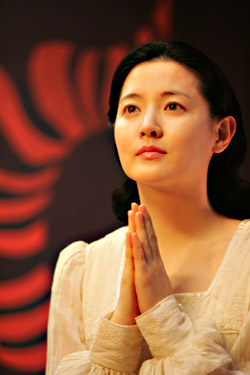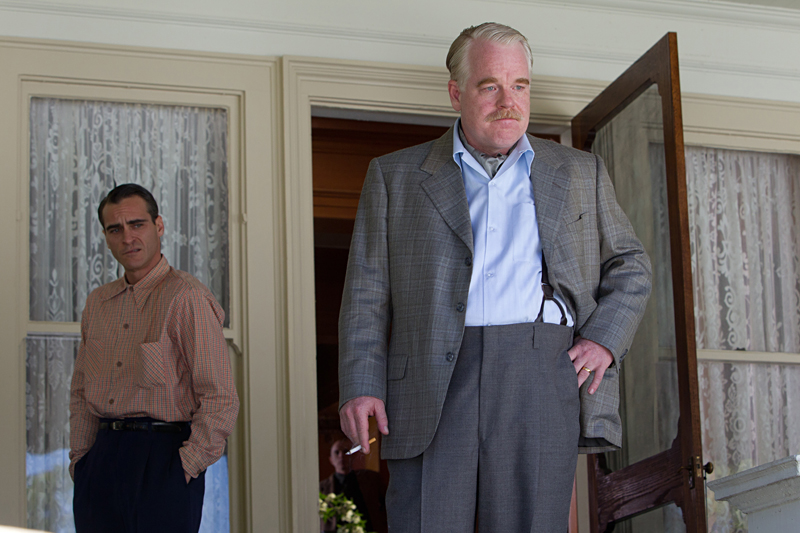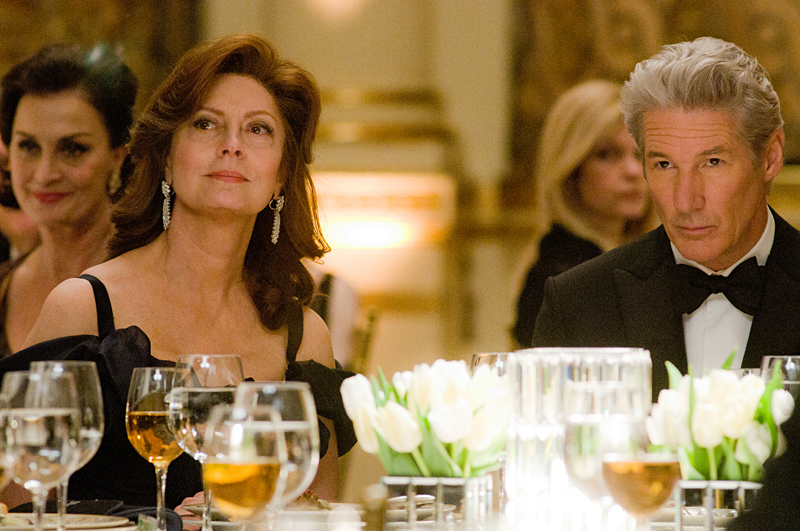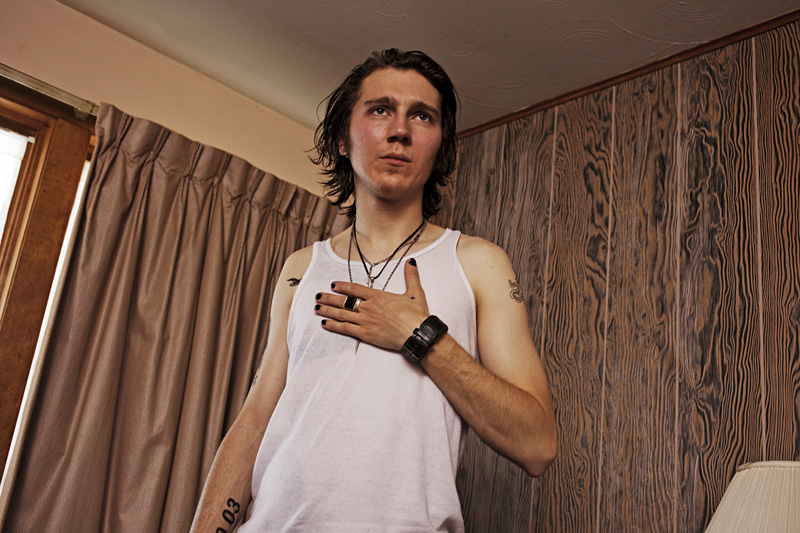By now, for masses of believers in mad Korean pulp as it has been epitomized by Park Chanwook’s Sympathy for Mr. Vengeance and Oldboy, the blood-on- alabaster montage behind the credits portends a familiar dynamic. Park’s films generally take his movie culture’s yen for emotional meth and triple the dose; we know there will be no half-measures, no dramatic gasoline unignited, nothing short of horrified respect for the costs of suffering, cruelty, memory, and rage. Lady Vengeance is his most sullen and patient film, and yet it’s breathless pop filmmaking, narratively mercurial, viscerally traumatic, and thematically infernal.
Park does run the risk of repeating himself: Here, the template of long-term retribution used by the churlish villain in Oldboy is handed to the heroine, Geum-ja (Lee Yeong-ae), who, after serving 13 years for the killing of a little boy, is released from prison. She insists she did it, and in a flashback to her trial, even re-enacts the crime for the police and TV cameras. But, we eventually learn, a grumpy cop doesn’t believe her, and it’s clear from her stony demeanor that the woman is ready for the long knives. But we have to wait: Crowding out the crime’s details in the film’s first jigsaw half are Geum-ja’s experiences in prison.
Pieced together in overlapping patches covering roughly two decades, the clockwork of Park’s story is often difficult to trace as you watch. But soon enough Geum-ja’s frosty post-prison intentions come to light, revealing her prey—the kindergarten teacher actually responsible for the murder, played by Oldboy‘s unforgettable Choi Min-sik—and the methodical scope of her payback plan. As much as Vengeance spins around its implacable protagonist like a rabid dog on a rope, the film becomes in its last, galling act an unlikely but stunning ensemble piece: Members from several murdered children’s families are gathered for a concentrated act of mourning, a debate about responsibility, a protracted execution, a slice of birthday cake, and a taste of the afterlife.
There’s also the matter of Geum-ja’s daughter, wrested from her, settled with adoptive Australian parents, and quasi-kidnapped again. This time, Park is interested less in submitting us to the chop shop (no tongues are cut, for instance) than in having us pick over prairie justice, even collectively enacted, and consider the mechanics of hatred. Even the catalytic murder of the boy is given short shrift amid the flashbacks—we’re denied the same primal satisfaction in righteous bloodshed that David Cronenberg made such farce of in A History of Violence. Killing bad guys for the sake of the American family is like shooting a duck in a political barrel; in Park’s realm, violence is a personalized toxifying plume that spreads from perp to victim to survivor and avenging angel.









